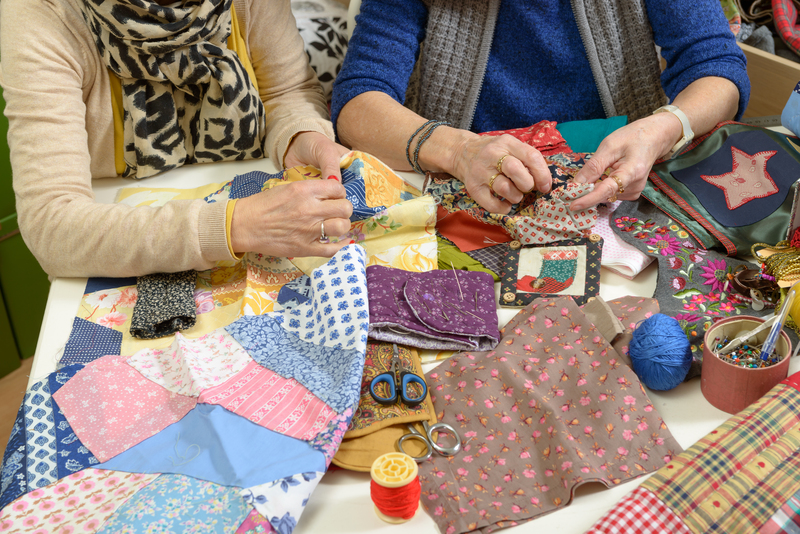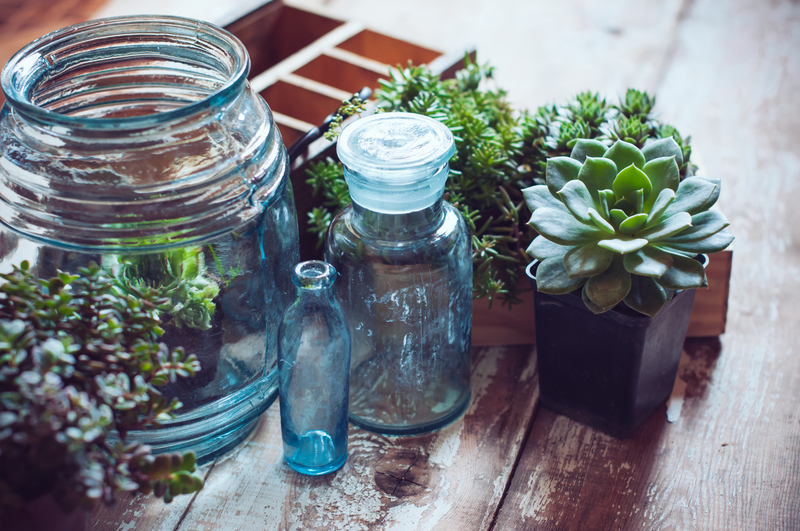Transforming Packaging and Cardboard Disposal with Innovative Solutions
The world is witnessing a remarkable shift in how goods are packaged and how waste materials like cardboard are handled. Emerging technologies, sustainability demands, and consumer awareness are accelerating the transformation of packaging and cardboard disposal practices. In this article, we'll explore the latest innovative solutions for packaging and cardboard waste management, focusing on sustainability, efficiency, and eco-friendly trends that are revolutionizing the industry.

The Urgency of Rethinking Packaging and Cardboard Waste
Each year, global e-commerce and retail industries consume billions of tons of packaging materials--most of which is cardboard. While cardboard is inherently recyclable, the overwhelming volume, contamination, and ineffective disposal methods result in mountains of waste sent to landfills.
- Cardboard accounts for over 30% of municipal solid waste in many developed countries
- Improper disposal leads to environmental pollution and resource depletion
- Cardboard recycling rates vary widely based on infrastructure and consumer behavior
Melting glaciers and unpredictable weather patterns are urgent reminders that the way we manage waste--including cardboard waste--impacts our planet. Transforming cardboard disposal practices is no longer a luxury; it's a necessity.
The Evolution of Packaging Materials
From Traditional Cardboard to Smarter Alternatives
Historically, packaging solutions focused on affordability and protection. Cardboard prevailed due to its cost-effectiveness and wide availability. Yet, as environmental concerns mount, companies are adopting smarter, greener alternatives to traditional packaging, such as:
- Biodegradable packaging: Made from plant-based fibers or compostable films, these materials reduce landfill pressure.
- Recycled cardboard: By incorporating post-consumer content, manufacturers minimize virgin paper usage.
- Reusable containers: These drastically cut single-use waste and offer longer life cycles.
- Minimalist design: Reducing material use without compromising safety, often called 'right-sizing'.
These innovative packaging solutions are not only eco-friendly but can also improve brand perception, reduce costs, and simplify disposal.
Innovations in Cardboard Disposal and Recycling
Smart Collection and Sorting Systems
The path to efficient cardboard waste management begins with collection. Smart bins equipped with sensors and IoT technology monitor fill levels and automate pickup schedules, minimizing overflows and optimizing routes. Some facilities use AI-powered robotic arms to sort cardboard from mixed recyclables, reducing contamination and improving material recovery rates.
Advanced Recycling Technologies
Traditional recycling processes are being revitalized through:
- Hydro-pulping: This water-based process removes inks and adhesives, delivering higher purity recycled fibers.
- Chemical recycling: Breaking down cardboard to its core molecules and reforming it into new materials.
- On-site compactors: Businesses use machines that condense cardboard, slashing storage space and transportation needs.
By modernizing recycling techniques, facilities can process more cardboard with less energy, resulting in a lower carbon footprint.
Automated Packaging Disposal Solutions
E-commerce warehouses and fulfillment centers generate vast amounts of cardboard waste. Automation is streamlining the collection and disposal process:
- Conveyor systems funnel used boxes directly into shredders or balers
- RFID tagging to track and sort reusable versus disposable materials
- Mobile disposal units for large-scale events and pop-up stores
Such systems enable efficient, large-scale cardboard disposal and increase recycling rates in supply chains.
Sustainable Packaging Design Innovations
Edible and Plantable Packaging
One of the most striking advances in sustainable packaging is the rise of edible and plantable materials. Imagine ordering food with a container you can eat or plant to grow herbs. Companies are piloting:
- Edible cardboard alternatives made from rice husks or potato starch
- Seed-infused cardboard that decomposes and sprouts flowers or vegetables
- Water-soluble films that vanish after use
These options delight consumers and leave virtually no waste for disposal.
Returnable and Refillable Systems
Retail giants and startups alike are experimenting with systems that collect used packaging for cleaning and redistribution:
- Reusable shipping containers that cycle between consumers and warehouses
- Deposit-return incentives for boxes and envelopes
- Reverse logistics programs that integrate package return into delivery networks
These systems cut cardboard waste and inspire customers to participate in eco-friendly practices.
Supply Chain Integration and Circular Economy Solutions
Closed-Loop Cardboard Recycling
In a circular economy, resources remain in use for as long as possible. Closed-loop recycling facilities work with local businesses to transform used cardboard into new packaging, minimizing transportation emissions and raw material usage. By adopting closed-loop systems:
- Businesses can achieve significant cost savings on packaging supplies
- Environmental impact is drastically reduced
- Transparency in recycling processes bolsters brand reputation
Collaborative Industry Initiatives
Many industries are joining forces to rethink packaging and cardboard waste management:
- Standardizing packaging sizes to streamline recycling and stacking
- Creating industry guidelines for recycled content and recyclability labeling
- Sharing best practices and data to accelerate innovation
Such collaboration amplifies positive impact and accelerates the adoption of inventive disposal solutions.
Consumer Education and Behavior Change
Empowering Customers to Dispose Responsibly
Innovative solutions for cardboard disposal also hinge on consumer participation. Brands and municipalities are investing in:
- Clear, illustrated instructions for flattening and sorting cardboard
- App-based reminders and rewards for recycling milestones
- Community collection points in high-density neighborhoods
Knowledgeable consumers are more likely to recycle correctly, reducing contamination and powering the circular economy.
The Role of Digital Platforms
Digital platforms are empowering responsible disposal by:
- Providing local recycling information and pickup schedules
- Gamifying recycling through leaderboards and challenges
- Enabling feedback so that users can report issues or suggest improvements
This digital transformation is making proper disposal and recycling of packaging materials convenient, engaging, and transparent.
The Business Benefits of Responsible Packaging and Disposal
Shifting to sustainable packaging and revolutionary cardboard disposal solutions isn't just an environmental win; it makes sound business sense:
- Cost Reduction: Efficient recycling and right-sized packaging use fewer resources and less storage space.
- Regulatory Compliance: Stricter waste regulations make compliant systems a must-have.
- Enhanced Brand Loyalty: Consumers increasingly seek eco-conscious brands, boosting sales and customer retention.
- Attractive to Talent: Sustainability appeals to purpose-driven employees in all industries.
By embracing transformative disposal and packaging solutions, companies can future-proof operations and unlock new competitive advantages.
Challenges Ahead in Transforming Cardboard Disposal
While the momentum for transforming cardboard and packaging disposal is robust, several hurdles remain:
- Access to recycling infrastructure isn't universal, especially in developing regions
- Ensuring the recyclability of complex packaging designs and multi-material products
- Educating consumers and businesses to prevent contamination
- Balancing upfront investments in new technology with long-term savings
Addressing these challenges will require partnerships between businesses, governments, technology providers, and consumers.

The Future: Innovative Solutions Shaping a Greener Tomorrow
The transformation of packaging and cardboard disposal is still unfolding. Exciting future trends include:
- AI-driven design tools that optimize packaging for material efficiency and recyclability
- Blockchain-powered traceability from raw material sourcing to end-of-life recycling
- Smart labels that guide both consumers and facilities on optimal disposal or reuse
Companies that continue to invest in innovative packaging and cardboard disposal solutions will shape not only their own futures but also contribute to a more sustainable world. Consumers, too, play a significant part--by making informed choices and demanding better from brands and retailers.
Conclusion: Join the Transformation of Packaging and Cardboard Disposal
The move towards innovative, sustainable solutions in packaging and cardboard disposal is critical for our planet's health and business success. By embracing new materials, smart disposal systems, advanced recycling methods, and consumer education, we're not just reducing waste--we're redefining what responsible consumption looks like.
Whether you are a business owner, a policymaker, or a consumer, you can play a role in transforming the landscape of packaging and cardboard disposal. Support sustainable brands, advocate for smart waste management, and educate your peers. Together, we can turn packaging waste into a valuable resource and create a cleaner, greener future powered by innovative packaging solutions.